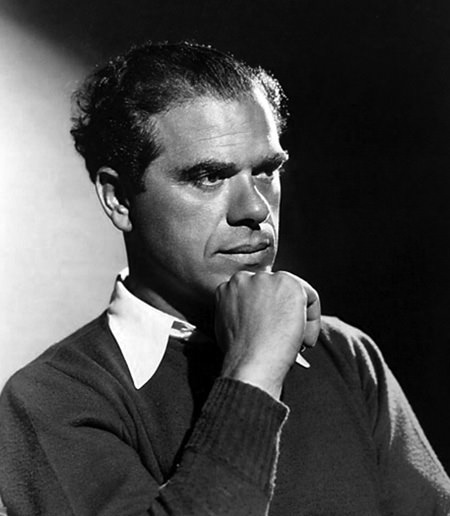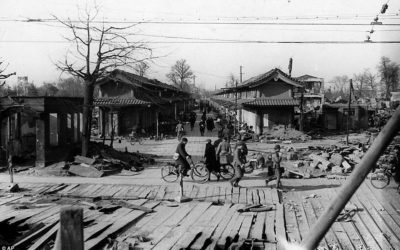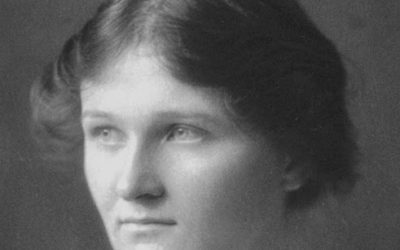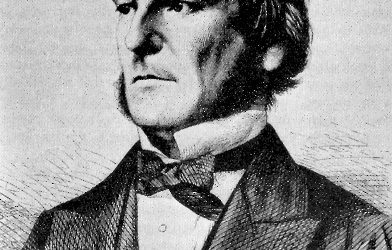Many of the stories featured in this space have involved adversity in its more visible forms, such as prejudice, poverty, and even outright violence. However, there is another kind of adversity that can be just as difficult to overcome, and in fact often accompanies the other kinds: emotional adversity. Neurosis, depression and self-doubt can be just as paralyzing to an individual as the external injuries we receive from the world. What’s more, emotional pain can come at any time to anyone, even those who are usually happy and well-adjusted. In fact, the director of some of the most famous “feel-good” movies in the history of Hollywood was a man who spent much of his early adulthood in the grip of severe depression, and who was convinced at one point in his life that he was a failure.
Francesco Rosario Capra was born in a Sicilian village in 1897, but he was only five years old when his whole family immigrated to the United States, eventually settling in Los Angeles. His father was a poor agricultural laborer, and so like many poor immigrant families his made the 13-day trip in a cramped, comfortless steerage compartment. Frank himself sold newspapers after school to earn extra money, but after graduating he surprised his parents by choosing to go to college rather than starting his career immediately. By taking on a succession of temporary jobs he was able to work his way through college, graduating from the California Institute of Technology with a degree in chemical engineering.
Capra left college just as the United States was entering World War I, and he was commissioned to teach mathematics to artillerymen at a school in San Francisco. Although he never saw combat, Capra didn’t escape his service unscathed; he contracted a severe case of influenza, the infamous “Spanish flu” that infected nearly a third of the U.S. population. While recovering at home, Capra began to suffer from a crisis of self-doubt. Although his college training was something he took great pride in, he seemed unable to do anything productive with it. The only member of his family with a college degree, he was also the only one who had never held a steady job. He felt trapped in the narrow confines of his neighborhood, with no prospects for success or self-improvement.
All that was to change in 1915, when Capra read a newspaper article about a new motion picture studio that was being formed in San Francisco. The movie industry was still only half-formed at this time, full of tiny studios hustling to establish themselves; it was a place where an outsider could get a foot in the door without the need for contacts or a proven track record. He phoned the new studio and was able to get a small directing job: $75 to shoot a one-reel silent film. Capra did the job in two days, leading to further work in the industry that culminated in his being hired by Harry Cohn, the co-founder of Columbia Pictures. Capra was to be a writer, a film cutter, and many other things as well as a director, but with the advent of feature-length sound films his role was confined to directing alone, and it was here he made his greatest mark on the industry.
The production of Capra’s first classic film, the screwball comedy It Happened One Night, had more than its fair share of troubles as well. The lead female role was turned down by half a dozen high-profile actresses, including the woman who eventually starred in it, Claudette Colbert. Both she and her co-star Clark Gable were unimpressed by the script, as well as their director, and after it was released to little fanfare several critics shared their low opinion of the film. Variety criticized it for lacking a strong plot, and The New Yorker called it “pretty much nonsense”. But when the movie opened in secondary theaters around the country, it began to develop positive word of mouth and became a surprise box-office hit. The film also took the Academy Awards by storm, winning all of the “Big Five” Oscars; this included a Best Actress award for Colbert, who was so certain she wouldn’t win that she hadn’t even attended the ceremony.
In a way, the success of It Happened One Night was a foretaste of the kind of story that became Frank Capra’s trademark, and which appeared in at least four of his major films: a simple, honest man struggles against a cynical and self-centered elite that seems to have the world in its hands, but he ultimately triumphs over them when his fellow citizens stand behind him and his ideals. Drawing on a uniquely American strain of populism, Capra created a series of films that represent the best aspects of American culture as many see it: personal integrity, consideration for the downtrodden, tolerance for those who think and act differently from the mainstream, and a willingness to challenge authority and “speak truth to power”.
It wasn’t always a simple matter for Capra to articulate his philosophy. When Mr. Smith Goes to Washington was released in 1939, Europe was in the grip of World War II. Many prominent figures, including Senator Joseph Kennedy, questioned the wisdom of making a film about corruption in the U.S. government when diplomats were working around the clock to present the country more favorably. Capra, however, believed that the principles expressed by his hero were patriotic ones, and upon its release both critics and general audiences strongly agreed. Even overseas the film was seen as a touchstone of democratic principles; just before the Vichy government in France banned American films, French audiences listed it as the film they were most interested in seeing.
Capra’s output declined significantly after the war, but his last major film proved to be, in the end, his most enduring. It’s a Wonderful Life was panned by critics on its initial release for being too “sentimental”, and it lost money at the box office, but to later generations it became a touching Christmas classic. It’s not a stretch to imagine that Capra saw a bit of himself in the character of George Bailey, a frustrated and desperate man who goes through a crisis of self-doubt, wishes that he was never born, and faces the horrible spectacle of a world where he wasn’t there to help those closest to him. Like his fictional hero, Frank Capra struggled against the darkness and doubt inside him, and emerged from that battle with renewed strength. And with his films Capra spread the message that all of us, no matter how miserable or powerless we sometimes feel, have the power to make the world a better place.
Next Post: Jerry Lawson, the electronics industry insider who led video games’ charge into the home with the Fairchild Channel F














